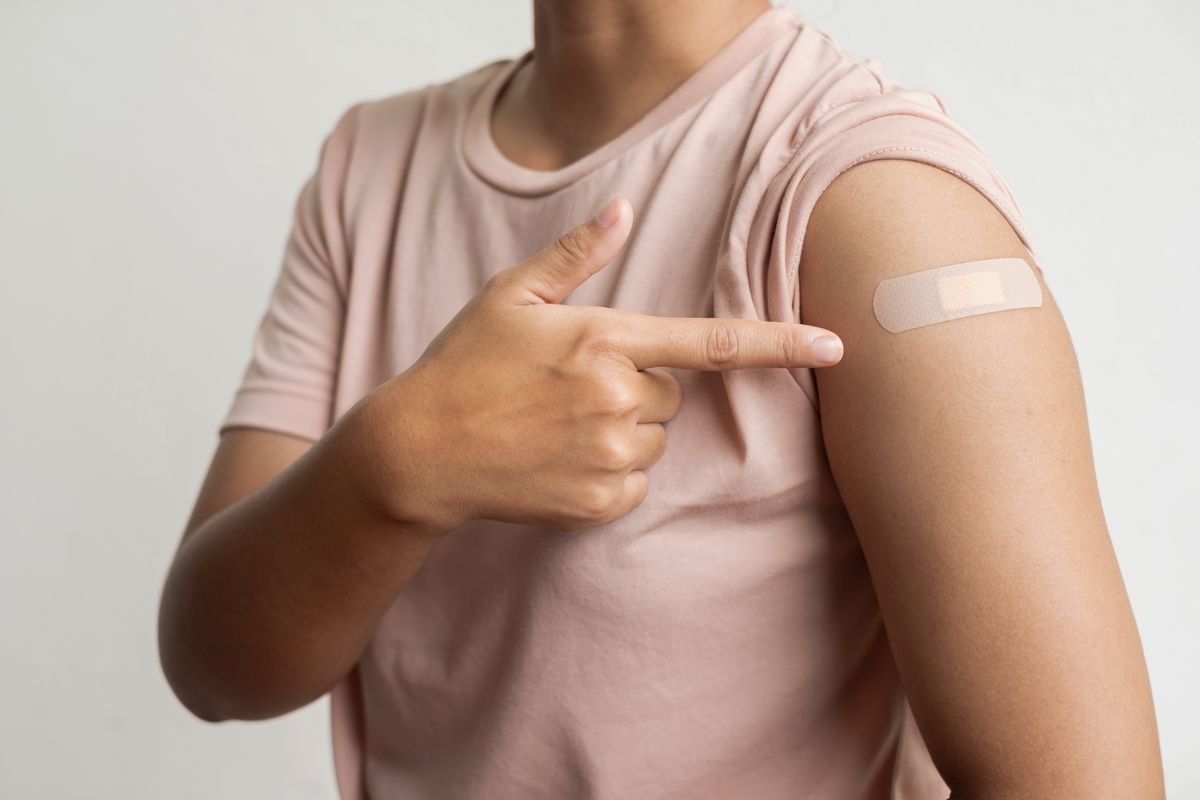Getting more than one vaccine at the same time has become much more common, especially as schedules get tighter and people try to take care of their health all at once. Whether it’s flu season, back-to-school prep, or travel plans, it often makes sense to get a few vaccines during one visit. And while that can be convenient, it's not unusual to feel a little off afterward.
Side effects may show up when your body starts responding to those vaccines, and that response can feel different from person to person. Some folks bounce back quickly, while others feel tired or achy for a bit. When you know what to expect and how to deal with it, it makes the whole process easier and less stressful. Let’s walk through what these symptoms are, why they happen, and what to do if you’re not feeling your best after getting multiple vaccinations.
Understanding Common Side Effects
Side effects happen when your body begins building protection after a vaccine. It’s actually a good sign that your immune system is doing what it’s supposed to do. Still, that doesn’t mean they’re always pleasant.
The most common side effects after receiving more than one vaccine include:
- Arm soreness where the shots were given
- Feeling tired or sleepy
- Mild headache
- Low fever or chills
- Muscle aches or joint pain
- Swollen lymph nodes, especially near the armpit if a shot was given in the arm
These symptoms usually go away in a couple of days. They’re part of your body’s normal response and don't usually require a doctor visit. Here's one way to think of it: your body is getting instructions from the vaccine, and it's going through a bit of training. Side effects come from that process.
But while most reactions are harmless and clear up fast, there are a few things to watch out for. It's smart to know when something isn’t typical. Here are a few signs that it’s time to call a healthcare provider:
- Skin rash or hives
- Dizziness or feeling faint
- Trouble breathing
- High fever that doesn’t go away
- Vomiting or intense stomach pain
If any of these symptoms happen right after the shot, seek help quickly. They could be signs of an allergic reaction, which is rare but serious.
It’s always better to understand the difference between a sore arm and something more serious. Paying attention to your body and how long symptoms last can help you figure out what’s normal and what’s not.
Immediate Steps to Manage Side Effects
Most mild side effects can be handled with some simple care at home. Getting vaccines doesn’t have to throw off the rest of your day, but taking a little time for yourself can help keep the symptoms from getting worse.
Here’s how you can ease some of the common reactions:
1. Rest when you can. Your immune system is working, so give your body a break. A nap or early bedtime can go a long way.
2. Drink plenty of water. Fluids help your body recover faster and can reduce headaches and aches.
3. Try a cool cloth or ice pack. Put it on the sore arm or any swollen area for a few minutes at a time.
4. Wear loose, comfortable clothing. This can prevent extra pressure on sore spots.
5. Eat light meals. If you’re feeling nauseous or tired, heavy foods may be hard to handle.
If you need relief from pain or fever, ask a healthcare provider about using over-the-counter meds, but don't take anything unless a professional says it's okay. Some people prefer to avoid them so the body can fully respond to the vaccine.
Even if you’re dealing with a couple of symptoms at once, you don’t have to panic. A low fever or two sore arms can feel annoying, but they usually mean that your body is doing its job. Tracking how you feel and when things improve makes it easier to stay on top of your health and better prepared for next time.
Long-Term Care and Observation After Vaccinations
Once you’ve made it through the first day or two, it’s still a good idea to pay attention to how your body feels over the next week. Sometimes symptoms hang on a bit longer if you’ve received a few shots at once. This doesn’t always mean something is wrong, but keeping an eye on things helps you stay in control of your recovery.
If you’re feeling sore for more than a few days or your energy still hasn’t bounced back after a week, writing things down each day can help you spot a pattern. Make quick notes about your symptoms, how you’re sleeping, if you’ve eaten normally, or if anything new pops up. That way, if you do reach out for support, you’ll have helpful information ready.
There are other signs to look out for that may point to the need for a follow-up. For example, if pain near your injection site gets worse instead of better, or a mild fever turns into something you can’t shake, those are worth checking out. Most of the time, these aren’t emergencies, but they may need a bit of extra care from a medical team.
Many people forget that any new medication or vaccine can interact with other health issues. Let’s say someone already has allergies or muscle pain from a different condition. A vaccine might add a temporary layer to their symptoms, which makes things harder to sort through. That’s even more reason to be aware of how your body feels in the days after.
Trusted Help for Managing Vaccine Side Effects in Greenville, TX
If you’re based in Greenville, TX, you don’t have to try figuring this out all by yourself. Local pharmacy teams can help guide you through what’s a normal part of your immune response and what might call for more attention.
Support from a professional goes far beyond just giving you the vaccine. Pharmacists who work with patients regularly understand common timelines of mild reactions and can help spot anything that falls outside of that window. Some clinics even offer follow-ups or check-ins for those who get multiple vaccines at once, especially during peak times like back-to-school or the start of the flu season.
And if you’re someone who’s had unusual reactions to shots in the past, it helps to have a known medical contact nearby. These situations might require a slower approach, spacing out certain vaccines, or tracking how your body handles them. Talking that through with someone who already knows your medical history saves you the guesswork down the line.
Local pharmacies in Greenville are a solid option for this kind of care because everything happens close to home. You avoid crowds, long waits, and have easier access to answers when you need them most.
Healthy Habits That Support a Strong Recovery
Feeling better after getting vaccinated isn’t just about reacting to symptoms. It’s also about what you do with your daily habits. These choices play a role in how fast and smooth your recovery goes.
Here are a few simple habits to keep in mind:
- Stick to meals you know your body agrees with. Now’s not the best time to try new spicy dishes or heavy foods if your stomach already feels unsettled.
- Go on easy walks if you’re up for it. Gentle movement can clear your mind, boost circulation, and help you recover faster than lying down all day.
- Avoid alcohol or smoking right after shots. These can interfere with your body’s ability to bounce back.
- Sleep is key. Try going to bed just a little earlier than usual. That extra rest gives your body more time to repair.
- Watch your stress levels. Do something you enjoy, whether it’s reading, working on a hobby, or spending time outside.
Even after side effects pass, your body’s immune system is still doing its job behind the scenes. These habits support its work and leave you feeling stronger overall.
Guiding Your Wellness Journey Forward
Getting multiple vaccinations doesn’t have to leave you feeling unsure of what’s coming next. If you understand what side effects can show up, how to care for them, and how long they might stick around, the whole experience becomes easier to handle.
People who track their symptoms, rest when needed, and ask for support when something doesn’t feel quite right tend to feel more at ease. You shouldn’t have to guess your way through something that affects your health. Even when side effects seem minor, taking the time to notice how you’re really feeling each day will help you respond better in the future.
The best part is, knowing how to manage things now means you’ll feel more ready next time. Whether it's flu season in Greenville or a back-to-school checkpoint, feeling confident and prepared makes a big difference.
If you're looking for a way to stay on top of your health while minimizing downtime, Greenville Medicine Shoppe is here to help. Learn how our personalized approach to vaccination services in Greenville, TX can support your recovery and give you peace of mind after your immunizations. We're here for every step of your wellness journey.

